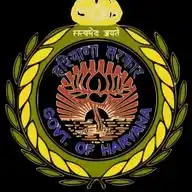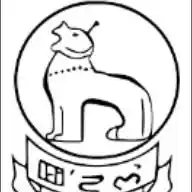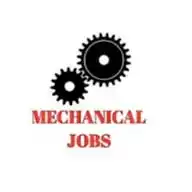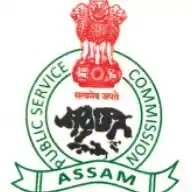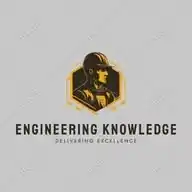
Mechanical Engineering World
35.8K subscribers
About Mechanical Engineering World
"Mechanical Engineering World" is a leading community knowledge in the world which is related to oil and gas, petrochemical industry, refinery, power plant and offshore. Mail I'd - [email protected] "MECHANICAL ENGINEERING WORLD" is a very big educational resources platform for get lot of updated knowledge and jobs about mechanical, instrument, electrical and chemical.
Similar Channels
Swipe to see more
Posts

👉 How To Choose The Right Valve For Oil & Gas Systems 👉 Read More: https://www.mechzonee.com/2025/06/how-to-choose-right-valve-for-oil-gas.html

👉 Steam Boilers 101: Types, Operation, and Maintenance 👉 Read More: https://www.mechzonee.com/2025/06/steam-boilers-101-types-operation-and.html

👉 Steam Boiler Safety Guidelines Every Engineer Should Follow 👉 Read More: https://www.mechzonee.com/2025/06/steam-boiler-safety-guidelines-every.html

👉 Gate, Globe, Ball, And Butterfly Valves: Functions And Applications 👉 Read More: https://www.mechzonee.com/2025/06/gate-globe-ball-and-butterfly-valves.html

👉 Fire Tube vs Water Tube Boilers: What’s the Difference? 👉 Read More: https://www.mechzonee.com/2025/06/fire-tube-vs-water-tube-boilers-whats.html

👉 How To Improve The Efficiency Of Your Steam Boiler System 👉 Read More: https://www.mechzonee.com/2025/06/how-to-improve-efficiency-of-your-steam.html

👉 Common Steam Boiler Problems And How To Troubleshoot Them 👉 Read More: https://www.mechzonee.com/2025/06/common-steam-boiler-problems-and-how-to.html

⏩ Handbook of HVAC water chillers and cooling towers ⏩ Download Handbook: https://lnkd.in/gvbhiyCz 👉 HVAC rules of thumb are based on generalized principles derived from thermodynamics, fluid mechanics, and building science. These theoretical foundations serve to estimate heating and cooling needs, ventilation requirements, and equipment sizing during preliminary design stages. ⏩ Principles of cooling towers handbook ⏩ Download Handbook: https://lnkd.in/g2mPsfX7 👉 The thermal load of a building is influenced by factors such as internal heat gains from occupants and equipment, solar radiation through windows, heat transfer through the building envelope, and outdoor environmental conditions. The cooling load accounts for both sensible and latent heat, while the heating load primarily involves compensating for heat losses to the environment. ⏩ Fundamentals of cooling towers handbook ⏩ Download Handbook: https://lnkd.in/gzrkdERP 👉 Airflow requirements are determined by the need to maintain thermal comfort, control humidity, and ensure adequate indoor air quality. This involves replacing or conditioning indoor air to meet acceptable standards for temperature, humidity, and contaminant levels. Ventilation is particularly important in maintaining healthy indoor environments and is influenced by occupancy levels and building usage. ⏩ Handbook of centrifugal pumps ⏩ Download Handbook: https://lnkd.in/gx_ZHbw7 👉 Duct and equipment sizing are influenced by airflow characteristics, pressure losses, acoustic considerations, and spatial constraints. The design aims to balance energy efficiency, thermal comfort, and ease of installation. Although these rules of thumb simplify design decisions, they are grounded in the complex interaction of heat transfer, mass flow, and energy conservation principles. They provide a starting point for more precise calculations and detailed simulations in later design phases.

⏩ Valves interview Q&A Pdf document ⏩ Download PDF: https://lnkd.in/g8QjvK8V 👉 A PRV (Pressure Relief Valve) is a safety device used in pressurized systems to prevent overpressure conditions. It automatically opens at a predetermined pressure to release excess fluid or gas, thereby protecting equipment and personnel from damage or injury. Once normal conditions are restored, the valve closes to maintain system integrity. PRVs are commonly used in industries like oil & gas, chemical processing, and power generation. ⏩ Maintenance of valves and actuators pdf ⏩ Download PDF: https://lnkd.in/gMBQE48Z 👉 A PSV (Pressure Safety Valve) is a safety device used in pressurized systems to prevent overpressure conditions. It automatically opens at a set pressure to release excess fluid, protecting equipment and personnel. Once the pressure drops to a safe level, the valve reseats. PSVs are critical in industries like oil & gas, chemical, and power generation to ensure system integrity and compliance with safety standards. ⏩ Handbook of selection of valves ⏩ Download Handbook: https://lnkd.in/giVeng7J 👉 A rupture disk is a non-reclosing pressure relief device designed to protect equipment from overpressure or vacuum conditions. It bursts at a predetermined pressure, providing an immediate release path for fluids or gases. Commonly used in chemical, oil and gas, and pharmaceutical industries, it ensures safety by preventing catastrophic failures. Rupture disks are reliable, quick-acting, and often used alongside relief valves for added protection.

⏩ Fundamentals of centrifugal pump pdf ⏩ Download PDF: https://lnkd.in/eGzSmAPV 👉 Pumps are mechanical devices used to move fluids (liquids or gases) by mechanical action. They are broadly classified based on their operating principles into two main types: positive displacement pumps and dynamic pumps. ⏩ Functions of pumps pdf document ⏩ Download PDF: https://lnkd.in/g6mTgezF 1️⃣ Positive Displacement Pumps: These pumps move fluid by trapping a fixed amount and forcing (displacing) it into the discharge pipe. 🅰️ Reciprocating Pumps: Use pistons, plungers, or diaphragms (e.g., piston pump, diaphragm pump). 🅱️ Rotary Pumps: Use rotating parts to move fluid (e.g., gear pump, screw pump, vane pump). c). Dynamic Pumps: These impart velocity to the fluid, which is then converted to pressure. ⏩ Centrifugal pump pdf document ⏩ Download Handbook: https://lnkd.in/g7h42NVV D). Centrifugal Pumps: Most common type, uses a rotating impeller to add velocity to the fluid. E). Axial Flow Pumps: Fluid moves parallel to the pump shaft, used in high flow, low head applications. F). Mixed Flow Pumps: Combine radial and axial flow characteristics. ⏩ Handbook of pumps and pumping ⏩ Download Handbook: https://lnkd.in/gPmXzizU 2️⃣ Other specialized pumps include: 🅰️ Peristaltic Pumps: Use rollers to compress flexible tubing, ideal for sterile or corrosive fluids. 🅱️ Jet Pumps: Use high-velocity fluid jets to create suction. C). Submersible Pumps: Designed to operate while submerged in the fluid. D). Diaphragm Pumps: Useful for hazardous or viscous fluids. Pump selection depends on factors like flow rate, pressure, fluid type, and application environment.


